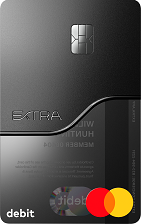Filter Options
×-
-
Unselect all
-
Unselect all
-
Unselect all

Showing 325 Cards
Sort By Column Name:
Grow Credit Mastercard
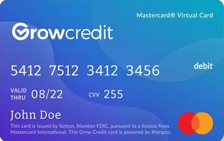
Grow Credit Mastercard
- 0.00% Regular Purchase APR
- 0.00% Balance Transfer APR
- 0.00% Cash Advance APR
At a Glance
Better credit through streaming? That's Grow Credit's interesting approach, where you could see your credit score go up simply by paying for your monthly entertainment subscriptions. Although limited in its abilities, Grow Credit's virtual Mastercard has one main goal: to improve your credit standing with the help of something you're likely already paying for.
- Best Benefits
- Rates & Fees
- Why Should You Apply?
- Grow Credit reports customer activity to the three major credit bureaus each month – which can help you establish, build, or grow your credit over time
- Choose from over 100 available subscription services to pay with Grow Credit
- Multiple membership plans to choose from – granting you enhanced benefits such as prmium subscriptions access & cell phone bill payment
- You can join Grow even if you have a limited or no credit history
- Regular Purchase APR: 0.00%
- Balance Transfer APR: 0.00%
- Cash Advance APR: 0.00%
- You want to establish or build up your credit standing
- You have multiple subscription services that you pay for on a regular basis
- You prefer to have all your subscriptions under the same payment method with minimal fuss
NerdUp by NerdWallet Credit Card
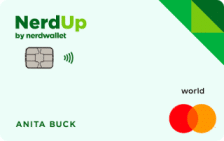
NerdUp by NerdWallet Credit Card
- 0% Cash Advance APR
At a Glance
The NerdUp by NerdWallet is a secured charge card designed to help build credit. The card earns 1% cash back on purchases, features a fairly low security deposit requirement, but doesn't provide any route for graduation to unsecured credit.
- Best Benefits
- Rates & Fees
- Why Should You Apply?
- Build your credit with no credit check or interest charges
- Earn 1% cash back on purchases
- Use rewards to increase your deposit or offset your card bill
- $0 annual fee
- Cash Advance APR: 0%
- Cash Advance Transaction Fee: $3 per ATM withdrawal
- Late Payment Penalty Fee: $5
- Return Payment Penalty Fee: $5
- Minimum Deposit Required: $100
- You are new to credit and want an easy way to begin building credit
- You want automatic repayments to help avoid missed payments
- You want basic cash back rewards without an annual fee
Experian Smart Money™
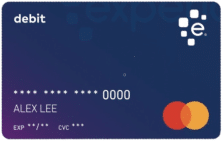
Experian Smart Money™
At a Glance
The Experian Smart Money™ Digital Checking Account and Debit Card is an interesting debit program that works with Experian Boost to help you establish a positive credit history based on the bill payments you already make. The card also comes with a practical welcome offer after meeting direct deposit minimums - all for no annual fee.
- Best Benefits
- Rates & Fees
- Why Should You Apply?
- No minimum deposits and no annual fee
- Works automatically with Experian Boost
- $50 direct deposit bonus
- FDIC-insured savings account
- Foreign Transaction Fee: 3% of the transaction amount in U.S. dollars
- Minimum Deposit Required: 0
- You are new to credit
- You plan on utilizing Experian's extensive knowledge base
- You want an insured deposit account
Zolve Azpire Credit Builder Card

Zolve Azpire Credit Builder Card
At a Glance
The Zolve Azpire Credit Builder Card is a combination bank account and debit card designed to help immigrants and those new to credit. The card features no annual fee and the ability to upgrade to unsecured credit in as little as four months.
- Best Benefits
- Rates & Fees
- Why Should You Apply?
- Build credit with no minimum deposits and no annual fee
- Unlimited 1% cash back on all eligible purchases
- Upgrade to an unsecured Zolve Credit Card in as little as 4 months
- FDIC-insured savings account
- You are a new arrival to the United States and want to begin building credit
- You prefer a card program that grows with you - not one you grow out of
- You want an insured deposit account that earns interest
Zolve Credit Card
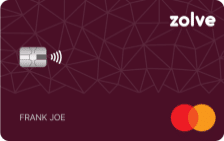
Zolve Credit Card
- 16% variable based on the Prime Rate Regular Purchase APR
At a Glance
The Zolve Credit Card is a credit builder credit card that helps new arrivals to the U.S. build credit and move on to more impressive rewards from the same program. The Zolve credit card earns unlimited 1% cash back and offers additional benefits with no annual fee.
- Best Benefits
- Rates & Fees
- Why Should You Apply?
- Up to $5,000 credit limit
- Earn 1% unlimited cash back
- Earn up to 10% cash-back at over 10,000 shopping outlets
- Regular Purchase APR: 16% variable based on the Prime Rate
- Late Payment Penalty Fee: Up to $40
- Return Payment Penalty Fee: Up to $40
- You are a new arrival to the United States and want to begin building credit
- You prefer a card program that grows with you - not one you grow out of
- You are happy with basic rewards and plan to stick with the free option
You've viewed 5 of 325 credit cards
What Does It Mean to Have “No Credit History?”
When it comes to financial matters, having a credit history plays a crucial role in determining your creditworthiness and financial stability. Typically, “no credit history” refers to a situation where an individual has no previous credit accounts or borrowing history. This means that there are no records of loans, credit cards, or any other form of credit in their name.
But just because you don’t have a credit history does not mean you’ve never had credit. You can have experience with credit in the past, yet you still have no credit history, according to FICO or VantageScore.
No Credit vs. No Credit History
No credit means you have no recent credit history. Those without a credit history within the last seven to ten years will find themselves lumped into the same “no credit” category as those who are entirely new to credit. So, even if you have borrowed money in the past, you may have no score.
FICO, VantageScore, and Credit History
Different credit scoring models have different definitions of no credit history.
FICO requires the following to establish a credit history:
- One tradeline reported within the previous six months. A tradeline is also known as a credit account.
- A tradeline at least six months old.
- Proof that the account holder is alive.
On the other hand, VantageScore does not have strict requirements for establishing a credit history. The VantageScore model only needs one month of credit activity to generate a credit score, which makes the scoring system popular with those who want to judge an applicant’s recent credit activity.
Regardless, you might not have a credit score if you don’t satisfy the requirements above.
The absence of a credit history can make it difficult for individuals to access loans, rent an apartment, or even secure a job. Lenders, landlords, and employers often rely on credit history to assess an individual’s financial responsibility and trustworthiness.
Why Does Credit Matter?
Credit plays a significant role in our daily financial and personal lives. Individuals with excellent credit scores enjoy numerous benefits, including increased access to credit, higher credit limits, and lower interest rates. These advantages stem from the fact that they have demonstrated their financial responsibility and trustworthiness to lenders.
The importance of having a credit history cannot be overstated. Firstly, it allows lenders to assess your creditworthiness when you apply for a loan. A strong credit history showcases your ability to manage credit responsibly, positioning you as a lower-risk borrower. This can lead to more favorable loan terms, such as lower interest rates.
Moreover, credit history often factors into landlords’ decision-making process when considering rental applications. A solid credit history instills confidence in landlords regarding your ability to pay rent on time. Similarly, employers may review credit history to evaluate an individual’s financial stability and responsibility, particularly for roles that involve financial trust.
Impact of No Credit or Bad Credit
A poor or bad credit score can cause various troubles in your life:
Trouble Renting
Finding an apartment can be a struggle for those with bad credit. Landlords and rental agencies consider an applicant’s credit report and a bad score can indicate a potential risk of missing rent payments. This can lead to rejections when applying for accommodation.
Loss of Job Opportunities
Employers can access your credit report and see past marks on your file. These credit marks can put you at risk for employment, as employers might deem you untrustworthy if you are susceptible to financial manipulation.
Poor Credit Options
People with bad credit struggle to find good credit products at reasonable rates. This lack of options extends to other services and products, like insurance. Most apparent with auto insurance, as insurers believe those with lower credit scores are more likely to submit a claim.
Given the difficulties experienced by those with poor credit, imagine how difficult it is to have no credit.
How to Build a Credit History
Building a credit score requires time and patience. However, there are specific steps you can take right away to improve your score in as little as a few months.
| ① Check your credit score | The first thing you should do is check your credit score to see where you stand. You might already know your credit score is bad, but how far down on the scale, does it go? Knowing how fast you can improve your credit from “bad” to “fair” is crucial to making a financial plan of attack. |
| ② Get a credit card for subprime credit | Part of boosting your credit score is increasing your use of credit. For those with bad credit, this may seem counter-intuitive. Fortunately, there are many unsecured credit cards for poor credit and secured cards that can help you repair your credit score. |
| ③ Pay on time each month | As seen in the scoring models, payment history is the biggest factor in your credit score. Because payment history is so important, paying your credit card bill on time each month is essential to boosting sub-prime credit. Missed payments stay on a credit report for seven years. |
| ④ Keep your credit use low | Credit utilization is as important as paying on time. Credit utilization shows lenders how you use your credit. Those who keep their credit use below 30% can expect their score to improve, while those who use less than 10% can expect a much faster score rise. |
Other Ways to Build Credit
Building Credit with Secured Credit Cards
One effective method of establishing credit is obtaining a secured credit card. Secured cards require a cash deposit as collateral, which serves as your credit limit. By using the card and making timely payments, you can demonstrate your ability to manage credit responsibly, which can help you build a positive credit history over time.
Becoming an Authorized User
Another way to establish credit is by becoming an authorized user on someone else’s credit card. This allows you to piggyback on their credit history, as the account activity will also be reported on your credit report. However, choosing a responsible and trustworthy individual is crucial, as any negative actions could also impact your credit.
Build Credit with Alternative Data
If you have been paying rent, utilities, or phone bills on time, you can use alternative credit data to build credit. Some credit reporting agencies consider these payments as part of your credit history.
An example of an alternative credit data tool is Experian Go. The Experian Go program is designed with the credit invisible in mind. Experian Go lets users build their credit history on their terms, using Experian’s industry-leading knowledge base and credit experts.
Enrolling services like this ensures that your positive payment history is reported to credit bureaus, helping you establish credit.
Tips for Building a Strong Credit History
To build a strong credit history, practicing responsible credit management is important. Here are some best practices to keep in mind:
- Pay your bills on time: Timely payments are crucial for establishing and maintaining a positive credit history. Consider setting up reminders or automatic payments to ensure you never miss a due date.
- Keep credit utilization low: Aim to keep your credit card balances below 30% of your credit limit. High credit utilization can negatively impact your credit score.
- Avoid opening too many accounts: While having a mix of credit accounts is important, opening too many accounts within a short period can raise concerns for lenders.
- Regularly check your credit report: Monitor your credit report for any errors or inaccuracies. If you notice any discrepancies, report them to the credit bureaus immediately.
Remember, building a strong credit history takes time and consistent effort. By following these tips, you can improve your creditworthiness and increase your chances of obtaining favorable credit terms in the future.
Conclusion
Establishing credit with no credit history may require some effort and patience, but it is a crucial step towards achieving financial stability. Following the strategies above, you can start building a strong credit history that will open doors to better loan terms, rental opportunities, and employment prospects. Remember to practice responsible credit management, regularly monitor your progress, and seek out available resources to support your journey toward establishing credit.
Check out more
Sub-Prime & Secured Credit Cards
Editorial Disclosure – The opinions expressed on BestCards.com's reviews, articles, and all other content on or relating to the website are solely those of the content’s author(s). These opinions do not reflect those of any card issuer or financial institution, and editorial content on our site has not been reviewed or approved by these entities unless noted otherwise. Further, BestCards.com lists credit card offers that are frequently updated with information believed to be accurate to the best of our team's knowledge. However, please review the information provided directly by the credit card issuer or related financial institution for full details.



